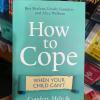To the collective teaching body of primary schools,
As teachers, you possess a role of developing the young minds of our future, a heavy task to fill. It is through education that you the adults ensure that the younger generation are prepared culturally, morally, and intellectually to renew our ‘common world’. This exercise of adult authority is indispensable for the running of an effective system of education; thus, education must involve the passing on of cultural experience and knowledge to the next generation, something that cannot happen without authority. After reading “Wasted: Why Education Isn’t Educating”, I have found, though, that adult authority can have a negative influence on education, with many educators infantilizing their students- treating students with too much care where the students are able to think or choose for themselves.
Many educators have assumed that for the uninterested child to become interested, the child needs more motivation. Teachers will try to motivate their students through childish games and incentives, in which they begin to infantilize the child. The tendency to infantilize child thus influences the way in which schools manage children’s play. Schools begin to worry about the child’s vulnerability to risks associated with playing and begin to regulate children’s physical activity carefully, not allowing the child to think and choose for themselves. Those who infantilize their students will also introduce co-operative games in which there are no losers. Anti-competition campaigners believe that “children gain great psychological benefits from co-operative sport since everybody receives applause and gains in self-esteem.” But in reality, children gain nothing from the ritual and understand that when nobody loses, nobody wins.
In part, the attempt to immunize children from the experience of losing serves as an alternative to motivating them. Experience shows that the project of abolishing failure in school infantilizes children and actually undermines their capacity to deal with the challenges they face and has tremendous effects on the student in the real world. For example, have you ever heard the phrase or one like “millennials are so fragile”? Well, due to the crisis of educators infantilizing their students through their teachings, when the student leaves home for the first time, they aren't prepared and are vulnerable to this new sense of living, and they are not ready for independence and require the moral guidance of their institutions for help.
As a junior in high school, I am very close to becoming a young adult, and it worries me that although I don’t know quite if I am or have been infantilized in my learnings, the fact if there is a chance means I will not be prepared for the real world and will have to suffer the consequences while also being in an unfamiliar environment.
To prevent the accidental infantilization and under preparedness of your students, you, the adult in authority, must be able to critique and discipline the student. You may believe that you already do so, but unconsciously many educators are too afraid to do so in the full capacity. In more recent times, teachers tend to perceive the issue of discipline as a direct threat to themselves due to the disrespect given to them when they do discipline. Makes sense because no one wants to get in trouble, regardless if infantilized or not. This sense of insecurity experienced by giving discipline suggests that educators not only feel insecure about the status of their authority, but that they also feel powerless to exercise it. The educators feel as if they do discipline not only will they get disrespected, but also, they are offending and possibly ruining the chances of the student’s future, leaving a burden on them.
In order to successfully discipline your students, you must first establish fair, equal guidelines that all students will understand, and when a student breaks those guidelines, while approaching them in an un-confrontational way, discipline them with negative punishment - taking away something they desire like recess – instead of positive punishment- embarrassing the student or yelling at them-, and the student will begin to change their behavior in order to receive what they desire back and follow discipline.
When criticizing the student, instead of just telling them what they did wrong, explain to them what alternatives that they can take in order for the student to not make another mistake. This applies to both the education aspect as well as the behavior aspect of students. For example, if a student is having trouble in a certain subject, instead of just telling them that the answer is wrong, explain to them how to find the answer on their own, by supplying hints, notes, mnemonics, etc.
Criticizing and disciplining your students although may seem terrible in the moment due to the backlash of whining and crying from the student (and even sometimes the parents), but in the long run, you are actually preparing them to adapt to the real world. With criticism and discipline, children learn moral principles of what's right or wrong and are able to adapt to change. In contrast, “children that are fed on a diet of empty praise, who are rarely challenged and even more rarely forced to confront their failures, are poorly prepared to tackle the tests of life.”
As a primary school educator, unlike secondary educators, you hold the first impact in a child’s life regarding education. You are developing the young minds to be able obtain the knowledge that they will be presented to them following their departure from primary school. You hold the responsibility to ensure your students are prepared to adapt to the common world, and you must do that by not infantilizing your students, but by giving criticism and discipline.
Thank You,
Grace Schaffer
















